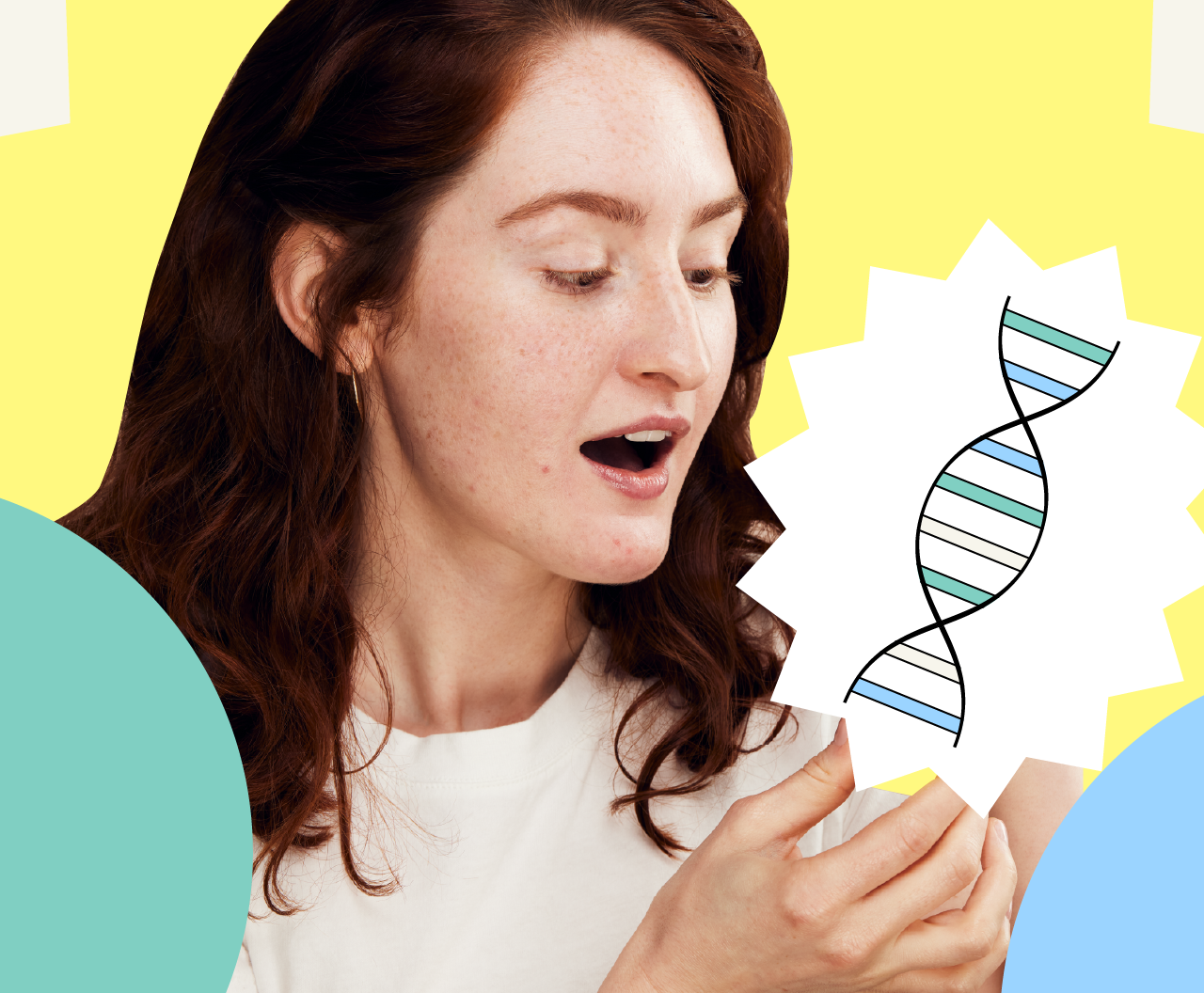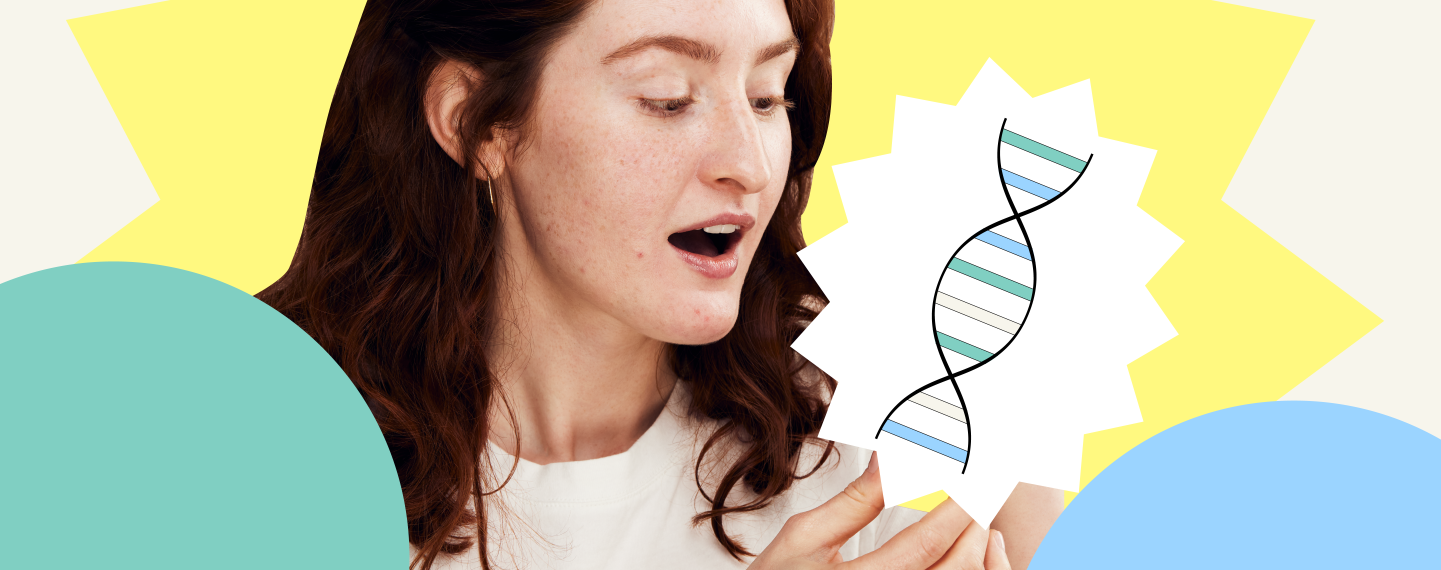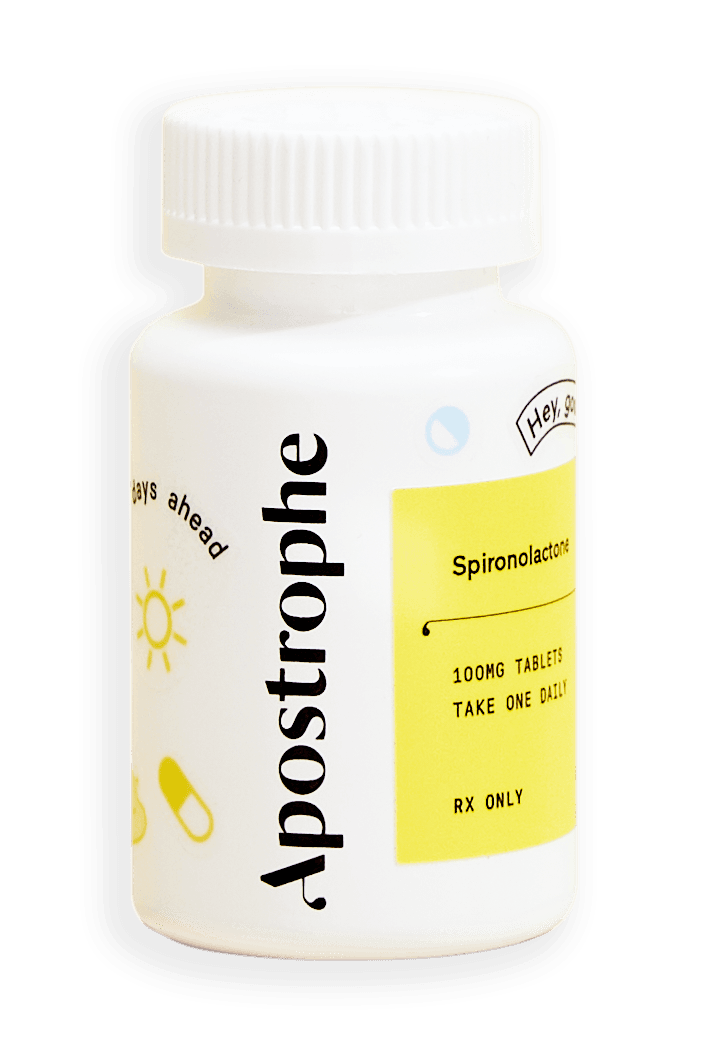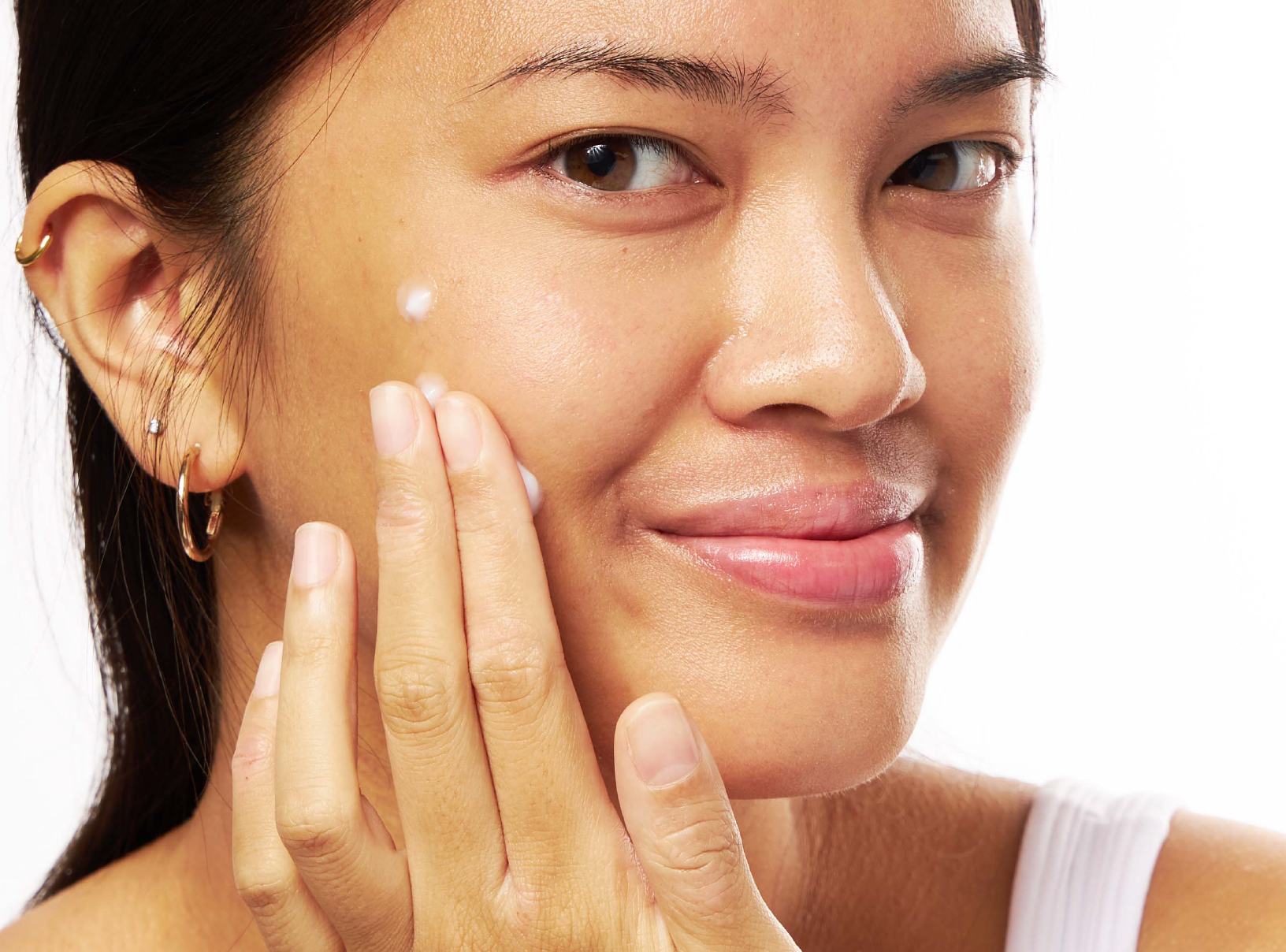Deep Dives
Is Acne Genetic?


SHARE
Deep Dives
Is Acne Genetic?
Medically reviewed by Aimee Paik, MD
Written by Annie Lam
Last updated 11/1/2024
When we talk about acne and breakouts, a common question is - what causes acne? It's important to remember that acne is a complex skin condition and can be caused by a variety of different factors. Environmental factors, hormonal changes, diet, genetic factors, and more can all play a role in your acne breakouts.
Many people wonder "does acne come from genetics?" or "can acne be genetic?". So today we're going to break down the connection between acne and genetics as well as the impact our genes have on our skin.
What causes acne?
If you deal with cystic acne or adult acne, you've likely wondered what factors are contributing to your breakouts. Acne vulgaris is a common skin condition that occurs when a hair follicle becomes clogged with dead skin cells and excess sebum. While a clogged pore is the reason for a basic acne lesion, we need to dive deeper into what causes your clogged pore in the first place. Here are some factors that can contribute to your acne breakouts:
Hormonal acne is typically caused by an increase in androgens (male sex hormones). This increase in androgens leads to increased sebum production and abnormal skin shedding, which can also lead to clogged pores and acne.
Cutibacterium acnes (c. acnes bacteria) can trigger inflammation in the skin and lead to worsened breakouts.
However, acne is complex and rarely black and white. Acne is a common skin condition and a number of factors can trigger your breakouts. Now that we know what causes acne, let's break down whether or not genetics play a role in your acne.
How do genetics impact your skin?
"Genes determine all the different characteristics of a living thing." They tell your cells how to make proteins, which helps to determine your features like height and hair color. This also affects structures and functions in your body.
There isn't a specific "skin gene" or "acne gene" since many genes are used to determine each feature or trait. It turns out that genes play a big role in your skin because it's made up of lots of proteins like collagen and melanin.
Skin type can also be hereditary - so if your mom struggled with oily skin, it's possible your sebaceous gland (oil gland) could be overproducing oil as well. Certain skin disorders are caused by the mutation of a regular gene, which keeps it from providing proper instruction to proteins. So as you can see, genetics and skin care are deeply connected. Now let's dive into the research behind how your genes impact acne.
What do the studies say about acne and genetics?
If you and your siblings have struggled through acne together, you might be wondering if there's a such thing as "genetic acne" or genetic skin conditions. It turns out that genetics do indeed play a role in acne. Let's break down the findings from research studies:
Study 1: Over 400 twin pairs were studied and showed that 81% of acne was due to genetic factors. 41% of twins with acne had at least 1 child with acne, compared to 17% of twins without acne.
Study 2: The risk of adult acne was significantly greater for individuals whose relatives also had acne.
Study 3: "Family history of acne is associated with earlier occurrence of acne," increased amount of acne, and therapeutic difficulty.
So if you've ever wondered if you have a genetic predisposition for acne, it appears that there's a lot of evidence to back up that connection.
How do your genes affect your acne?
📈 Some hormonal conditions, like PCOS (polycystic ovary syndrome), have increased commonality in families. Acne is commonly linked to PCOS due to its effect on hormones.
🤰🏽 If acne runs in your family, you may have a higher risk of developing acne. The acne may be more severe and difficult to treat. Your family history can impact both adult and adolescent acne.
🦠 Your genetics can impact how effectively your immune system can ward off bacterium like c. acnes bacteria. C. acnes bacteria can increase inflammation and worsen acne.
So if your mom and dad had acne in their teens or 20s, your risk factors of developing acne is high. Don't be discouraged though! Luckily, there are some amazing acne treatments out there that can target your breakouts.
How to treat your acne
Now that you know your acne may be (in large part) due to your genetics, let's talk about acne treatment. If you have very mild acne, over-the-counter treatments like benzoyl peroxide and salicylic acid can help reduce breakouts. However, depending on your acne severity, you may want to check in with a dermatology provider.
Dermatology providers are extremely well trained in identifying different types of acne and will provide the best medical advice for your unique skin. Some tried-and-true acne treatments that our derms love are tretinoin and azelaic acid. However, if you have moderate acne or severe acne, your dermatology provider may also recommend oral acne treatments like spironolactone, doxycycline, or isotretinoin/Accutane (depending on severity).
If you've been looking for the solution to your acne prone skin, it's time to start an online derm visit through Apostrophe. If prescribed, you'll receive a customized skin care treatment plan crafted by an expert dermatology team. Get started on your journey to clear skin today!
Sources:
https://pubmed.ncbi.nlm.nih.gov/25876146/
https://pubmed.ncbi.nlm.nih.gov/10468803/
https://pubmed.ncbi.nlm.nih.gov/16484821/
https://pubmed.ncbi.nlm.nih.gov/12485434/
https://www.news-medical.net/health/Genetics-of-Acne.aspx
https://www.jidonline.org/article/S0022-202X(15)30101-9/fulltext
https://www.ncbi.nlm.nih.gov/pmc/articles/PMC3945714/
https://www.genesandhealth.org/genes-your-health/genes-made-easy
https://medlineplus.gov/genetics/
Shop this post

Tretinoin

Finacea (azelaic acid)

Oral Spironolactone
Like what you just read? Sign up for our email list to get the scoop on skincare science delivered straight to your inbox.

Deep Dives
A dermatologist shares his thoughts on the recent studies about benzoyl peroxide and benzene.
Read More
Education
What is milia?
What is milia? Today, we’re jumping into one type of bump that you may have heard about most commonly in infants — milia.
Read More
Education
Best moisturizer for acne-prone skin
If you have combination acne-prone skin, figuring out which moisturizer is best for your skin might be tough. In this guide, we break down the best moisturizer for combination, acne-prone skin.
Read More
